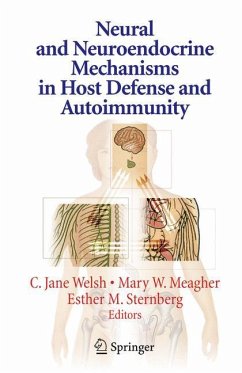
Polyomaviruses and Human Diseases

PAYBACK Punkte
76 °P sammeln!
This book explains the means of diagnosis and treatment of polyomavirus and contains an ample outline of the history, pathology, symptoms, and treatment of diseases induced by human polyomavirus. This volume is divided into four sections which thoroughly explore the most up to date information on polyomavirus including a general discussion of the virus, exploration of transplant related pathobiology, histopathology, diagnosis, management, and pharmacotherapy, afflictions and diseases caused by polyoma-JC virus and neoplastic associations of polyomaviruses. This comprehensive text will provide the reader with information on all of the latest advancements in the area.
Science never solves apr oblem without creating ten more Geor ge Bernard Shaw How prophetic the above words prove to be when applied to the advances of 20th century medicine. Prior to Banting and Best, chnicians were unaware of the ravages of diabetes, patients simply wasted away and died. Following the purifica tion of insulin, clinicians now had to deal with diabetic retinopathy, diabetic neph ropathy and all the other complications of long-term diabetes. A little over 50 years ago, the first successful human kidney transplant was performed in Boston. The first 30 years of the experience had successes when compared to the alternative but were a constant struggle to get even 50% of the grafts from deceased donors to survive more than a year. However, the science continued to advance knowledge of the immune response. With this came more and increasingly powerful tools for the clinician. Suddenly, success rates of 80-90% at one year were attainable. With this success came new problems, new complications and clinicians now had to worry about the long-term consequences of their therapy as patients were surviving with functional grafts for extended periods. A particular infectious complication evolved with the application of ever more powerful immunosuppressant drugs. Astute clinicians noted that occasionally cellular rejections seemed to get worse with steroids. Despite their best efforts and the use of powerful drugs, patients lost their grafts to overwhelming interstitial infiltrates not seen before.













